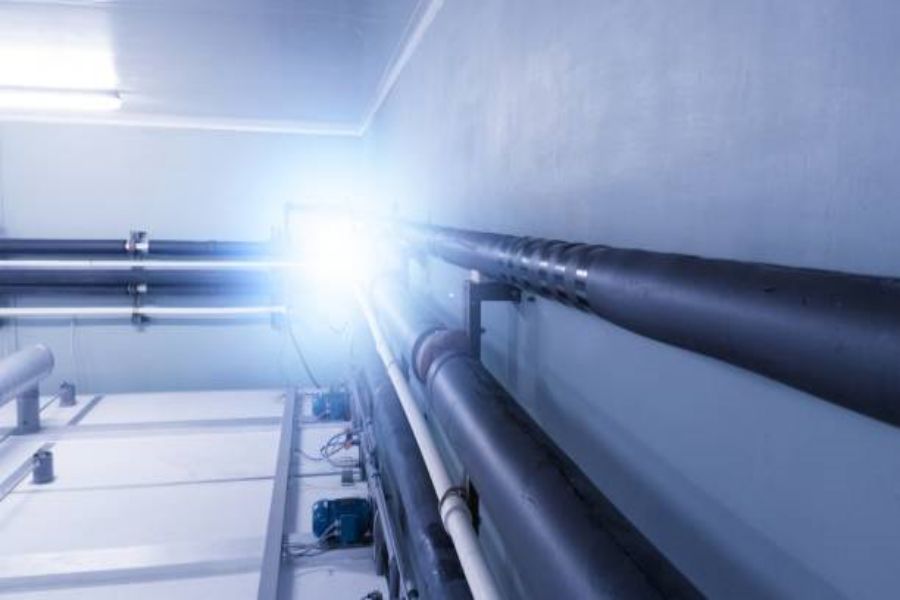1. What is a hydro chiller?
A hydro chiller, also known as a water chiller, is a device used to cool water or other liquids to lower temperatures. It is commonly used in various industrial applications, such as in the food and beverage industry, pharmaceuticals, plastics manufacturing, and HVAC systems. Hydro chillers are designed to remove heat from the liquid, ensuring optimal temperature control for different processes.
2. How Does a Hydro Chiller Work?
Hydro chillers work on the principle of heat exchange. They consist of a refrigeration system that uses a compressor, condenser, expansion valve, and evaporator. The compressor compresses the refrigerant gas, increasing its pressure and temperature. The hot refrigerant gas then flows into the condenser, where it releases heat to the surrounding air or water. As a result, the refrigerant cools down and turns into a liquid. The liquid refrigerant passes through an expansion valve, which reduces its pressure, causing it to evaporate and absorb heat from the water or liquid being cooled. This cycle repeats to maintain a consistent cooling effect.
3. Benefits of Using Hydro Chillers
Hydro chillers offer several advantages in various industries. Some of the key benefits include:
- Temperature Control: Hydro chillers provide precise and reliable temperature control, ensuring optimal process conditions.
- Energy Efficiency: Modern hydro chillers are designed to be energy-efficient, reducing overall energy consumption and operating costs.
- Process Optimization: By maintaining consistent temperatures, hydro chillers help optimize production processes, leading to improved quality and productivity.
- Equipment Protection: Hydro chillers prevent overheating of equipment and machinery, extending their lifespan and reducing the risk of breakdowns.
- Environmental Benefits: Some hydro chillers use eco-friendly refrigerants, minimizing their impact on the environment.
4. Applications of Hydro Chillers
Hydro chillers find extensive use in various industries and applications. Here are some common applications:
- Food and Beverage: Hydro chillers are used to cool ingredients, maintain food safety standards, and control fermentation processes in breweries and wineries.
- Plastics Manufacturing: Hydro chillers are crucial in cooling molds and maintaining precise temperatures during injection molding, blow molding, and extrusion processes.
- Pharmaceuticals: Hydro chillers are used to cool equipment, control laboratory temperatures, and maintain stable conditions for drug production.
- HVAC Systems: Hydro chillers play a vital role in cooling water for air conditioning systems, ensuring comfortable indoor environments.
- Laser Cutting and Welding: Hydro chillers cool the laser equipment, preventing overheating and ensuring accurate cutting and welding processes.
5. Factors to Consider When Choosing a Hydro Chiller
When selecting a hydro chiller for your specific needs, it's essential to consider the following factors:
- Cooling Capacity: Determine the required cooling capacity in terms of BTU (British Thermal Units) or tons to ensure the chiller can meet your cooling demands.
- Temperature Range: Check the chiller's temperature range to ensure it can achieve and maintain the desired temperature for your application.
- Energy Efficiency: Look for energy-efficient models to reduce operational costs and environmental impact.
- Reliability: Choose a chiller from a reputable manufacturer known for producing reliable and durable equipment.
- Size and Space: Consider the available space for installation and choose a chiller that fits within the allocated area.
6. Maintenance and Care for Hydro Chillers
To ensure optimal performance and longevity of hydro chillers, regular maintenance is crucial. Here are some maintenance tips:
- Cleanliness: Keep the chiller and its surroundings clean to prevent dust and debris from clogging the unit.
- Filter Checks: Regularly inspect and clean the filters to maintain proper airflow and prevent dirt buildup.
- Refrigerant Levels: Monitor and maintain the correct refrigerant levels to ensure efficient operation.
- Condenser and Evaporator Inspections: Periodically check the condenser and evaporator coils for any damage or leaks, and clean them if necessary.
- Professional Service: Schedule routine maintenance with qualified technicians to identify and address any potential issues.
7. Common Troubleshooting Tips for Hydro Chillers
If you encounter any issues with your hydro chiller, here are some common troubleshooting tips:
- Check Power Supply: Ensure the chiller is receiving power and the circuit breaker hasn't tripped.
- Inspect Control Settings: Verify that the temperature and control settings are correctly configured.
- Check for Leaks: Look for any visible leaks in the system and address them promptly.
- Clear Airflow Obstructions: Remove any obstructions blocking the airflow around the chiller to prevent overheating.
- Refer to the Manual: Consult the chiller's manual for specific troubleshooting steps and contact the manufacturer if needed.
8. The Future of Hydro Chillers
As technology continues to advance, the future of hydro chillers looks promising. Manufacturers are focusing on developing more energy-efficient and environmentally friendly models. Smart chiller systems with remote monitoring and advanced control features are also gaining popularity. These advancements aim to enhance efficiency, reduce operational costs, and provide real-time insights into chiller performance.
9. Conclusion
Hydro chillers play a vital role in various industries, offering precise temperature control, energy efficiency, and equipment protection. Understanding how they work, their applications, and maintenance requirements can help you make informed decisions when choosing and using hydro chillers. By considering the factors mentioned and following proper maintenance practices, you can ensure optimal performance and longevity of your hydro chiller.
10. SEO Keywords
hydro chiller, water chiller, temperature control, industrial applications, refrigeration system, energy efficiency, process optimization, equipment protection, eco-friendly refrigerants, food and beverage industry, plastics manufacturing, pharmaceuticals, HVAC systems, laser cutting, welding, cooling capacity, maintenance tips, troubleshooting, future of hydro chillers
